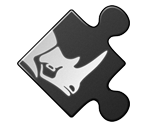Problem
Imagine you have an array of strings which contains duplicates. RhinoScript has a method to cull the duplicate strings. But rather than cull them, one would like to find them with a routine that will return the indices of the duplicate items.
Better yet, a routine that would return sets of indices, with each set containing the indices of a particular string would solve the problem. For example, if an array contained “Curve”, “Surface”, “curve”, “surface”, we would like to have an array containing [0,2] and [1,3] returned.
Solution
VBScript’s Dictionary is a useful tool for storing associative data, or data in the form of (key, item) pairs. In the problem outlined above, you could use a Dictionary to track each string and the indices where is appears in the array. In other words, use a Dictionary to store (string, indices) pairs.
To store the indices, you are going to need an array. But creating and resizing VBScript arrays is always a challenge. So, you might consider using a .NET’s ArrayList object. A .NET ArrayList is a COM-enabled object, which means it can be used in VBScript.
The following sample function demonstrates how you can use a Dictionary of strings and .NET ArrayList objects to find the indices of duplicate string items in an array.
Function FindDuplicateStrings(arrStrings, blnCase)
' Local variables
Dim objDict, strKey, objItem, arrItems
Dim i, j, nCount
Dim arrResults()
' Default return value
FindDuplicateStrings = Null
' Create a dictionary object and set it's compare mode
Set objDict = CreateObject("Scripting.Dictionary")
If (blnCase = True) Then
objDict.CompareMode = vbBinaryCompare
Else
objDict.CompareMode = vbTextCompare
End If
' Process input strings. If the string is not in the dictionary,
' then add it and add it's index to the ArrayList. Otherwise,
' just add it's index to the dictionary item's existing ArrayList.
For i = 0 To UBound(arrStrings)
strKey = arrStrings(i)
If Not objDict.Exists(strKey) Then
objDict.Add strKey, CreateObject("System.Collections.ArrayList")
End If
objDict(strKey).Add(i)
Next
' Find all of the dictionary items that have more than one index.
' Add those arrays to our result array
nCount = 0
arrItems = objDict.Items
For Each objItem In arrItems
If (objItem.Count > 1) Then
ReDim Preserve arrResults(nCount)
arrResults(nCount) = objItem.ToArray()
nCount = nCount + 1
End If
Next
' Done!
FindDuplicateStrings = arrResults
End Function
Here is an example of how to use the above function:
Sub TestFindDuplicateStrings
Dim arrStrings, arrResults, arrItem, nItem, i
arrStrings = Array("Curve" , _
"Surface", _
"Mesh", _
"Point", _
"Surface", _
"Curve", _
"Curve")
arrResults = FindDuplicateStrings(arrStrings, False)
If IsArray(arrResults) Then
Call Rhino.Print("Duplicate Sets = " & CStr(UBound(arrResults) + 1))
For i = 0 To UBound(arrResults)
Call Rhino.Print("Set = " & CStr(i + 1))
arrItem = arrResults(i)
For Each nItem In arrItem
Call Rhino.Print("Item " & CStr(nItem) & " = " & arrStrings(nItem))
Next
Next
End If
End Sub

